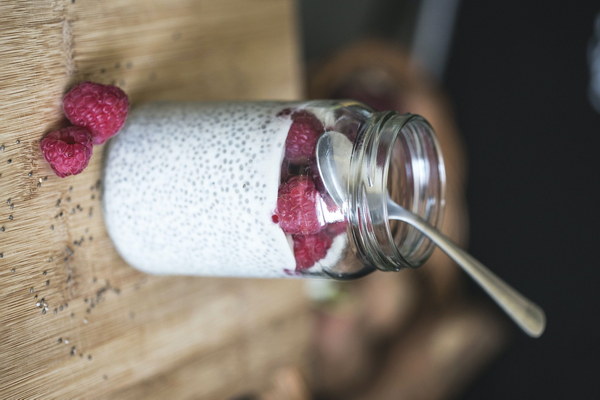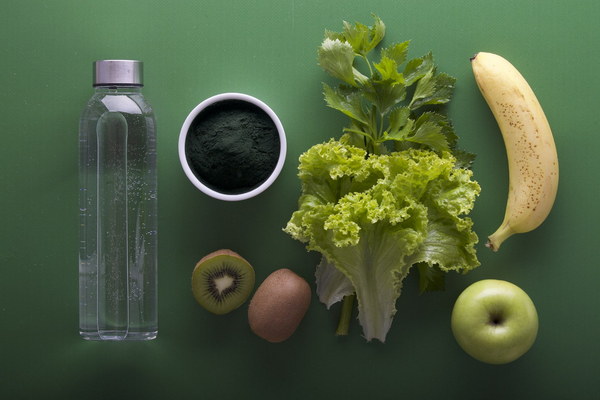Revitalize Your Lungs A Comprehensive Guide to Lung Care and Treatment
Revitalize Your Lungs: A Comprehensive Guide to Lung Care and Treatment
In today's fast-paced world, our lungs are often the first to suffer due to pollution, stress, and poor lifestyle choices. However, taking proactive steps to care for and treat your lungs can lead to improved respiratory health and overall well-being. This article delves into various strategies for lung care, from diet and exercise to medical treatments and natural remedies.

Understanding Lung Health
Before delving into the specifics of lung care and treatment, it's essential to understand the importance of lung health. The lungs are responsible for oxygenating the blood and removing carbon dioxide, which is crucial for every cell in the body. When the lungs are not functioning properly, it can lead to a range of health issues, including respiratory infections, chronic obstructive pulmonary disease (COPD), and asthma.
Dietary Considerations
A balanced diet can play a significant role in maintaining lung health. Here are some dietary tips:
1. Rich in Antioxidants: Incorporate fruits and vegetables high in antioxidants, such as berries, spinach, and kale, to help combat oxidative stress and inflammation in the lungs.
2. Omega-3 Fatty Acids: Foods rich in omega-3 fatty acids, like fatty fish, flaxseeds, and walnuts, can reduce inflammation and improve lung function.
3. Vitamin D: Vitamin D is essential for lung health. Include fatty fish, egg yolks, and fortified foods in your diet or consider a supplement if you are at risk of deficiency.
4. Hydration: Staying well-hydrated helps maintain the elasticity of the lungs and aids in the removal of mucus.
5. Avoid Allergens and Irritants: Minimize the intake of foods that trigger allergies or respiratory issues, such as dairy, gluten, or other allergens.
Regular Exercise
Exercise is vital for lung health. It strengthens the respiratory muscles, improves oxygen delivery to the body, and enhances lung capacity. Here are some exercises to consider:
1. Pursed-Lip Breathing: This technique involves breathing in deeply through the nose and exhaling slowly through pursed lips. It helps improve lung function and reduce shortness of breath.
2. Walking: Regular walking can increase lung capacity and improve overall cardiovascular health.
3. Swimming: Swimming is excellent for lung health as it involves deep breathing and can help with the strengthening of respiratory muscles.
Avoiding Harmful Substances
One of the most effective ways to treat and prevent lung problems is to avoid harmful substances:
1. Smoking: Smoking is a leading cause of lung disease. Quitting smoking can significantly improve lung health and reduce the risk of developing serious conditions like lung cancer and COPD.
2. Air Pollution: Exposure to air pollution can irritate the lungs and lead to respiratory problems. Try to minimize your exposure by staying indoors on high-pollution days and using air purifiers.
3. Volatile Organic Compounds (VOCs): These chemicals are found in many household products and can irritate the lungs. Opt for natural or low-VOC alternatives when possible.
Medical Treatments
In cases where lung conditions are more severe, medical treatment may be necessary. Here are some common treatments:
1. Medications: Inhaled bronchodilators and corticosteroids can help manage symptoms of asthma and COPD.
2. Oxygen Therapy: For those with chronic lung conditions, supplemental oxygen may be prescribed to ensure adequate oxygen levels in the blood.
3. Surgeries: In some cases, surgery may be necessary to remove damaged lung tissue or to correct structural abnormalities.
Natural Remedies
Natural remedies can complement medical treatments and improve lung health:
1. Herbal Supplements: Herbs like turmeric, ginger, and echinacea have anti-inflammatory properties and can support lung health.
2. Steam Therapy: Inhaling steam can help loosen mucus and reduce inflammation in the airways.
3. Aromatherapy: Essential oils like eucalyptus and peppermint can help open up the airways and improve breathing.
Conclusion
Taking care of your lungs is an ongoing process that requires a combination of lifestyle changes, diet, exercise, and, when necessary, medical intervention. By following these strategies, you can significantly improve your lung health and enjoy a better quality of life. Remember, it's never too late to start taking steps towards healthier lungs.









